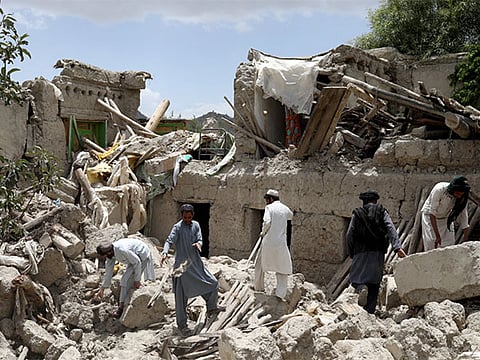
Introduction
On October 15, 2023, Afghanistan was rocked by a powerful earthquake measuring 6.6 on the Richter scale, causing widespread destruction and loss of life. This natural disaster has highlighted the ongoing vulnerabilities within the nation, already grappling with significant humanitarian challenges. The earthquake’s impact underscores the urgency for international support and a sustained response to aid recovery efforts.
Details of the Earthquake
The earthquake’s epicenter was located in the mountainous region of Badghis province, a remote area that has been historically prone to seismic activity. The tremors were felt across several provinces, including Herat, Kandahar, and even parts of Iran, resulting in significant structural damage to homes and infrastructure. As per the latest reports from local authorities, the death toll currently stands at over 1,200, with thousands more injured.
Humanitarian Crisis and Response
The aftermath of the earthquake has exacerbated the already dire humanitarian situation in Afghanistan. With winter approaching, thousands of families have been left homeless, while access to essential services such as healthcare and clean water remains critically limited. The Afghan Red Crescent Society, along with various international organizations, has mobilized emergency teams to provide aid, including food, medical supplies, and temporary shelters.
The United Nations has issued an emergency appeal for $25 million to facilitate immediate relief efforts. However, logistical challenges due to the harsh terrain and ongoing security issues hinder the delivery of aid. International bodies are urging governments and organizations to come together and prioritize support for the affected regions.
Conclusion
The recent earthquake in Afghanistan serves as a stark reminder of the country’s vulnerability to natural disasters, compounded by years of conflict and instability. As recovery efforts continue, the need for global solidarity and assistance remains paramount. With winter looming, urgent humanitarian efforts are essential to ensure the safety and well-being of those affected. The international community must respond not only with immediate relief but also by investing in long-term strategies to build resilience against future disasters.



